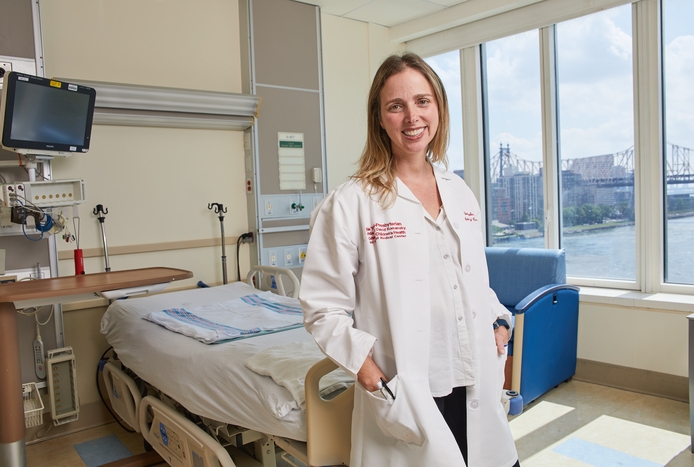
Dr. Chani Traube, the Gerald M. Loughlin, MD Professor of Pediatrics at Weill Cornell Medicine, has been awarded a $3.4 million grant, with the possibility of extending to a total of $17 million over five years, from the National Institutes of Health, for a large-scale clinical trial called Optimizing Pain Treatment in Children on Mechanical ventilation (OPTICOM).
OPTICOM, funded by the Eunice Kennedy Shriver National Institute of Child Health and Human Development, is part of the NIH’s HEAL KIDS PAIN initiative. The OPTICOM study will enroll 644 children in 14 pediatric intensive care units across the United States that are part of the institute’s Collaborative Pediatric Critical Care Research Network. This randomized clinical trial is designed to determine if adding acetaminophen or ketorolac, together or separately, to opioid-based pain control reduces pain in children with acute respiratory failure.
Dr. Traube’s co-principal investigators on the project are Dr. Michael Bell, chief of critical care medicine at Children’s National Medical Center, and Dr. Richard Holubkov, chief biostatistician for the Data Coordinating Center at the University of Utah School of Medicine.
“Critical care research often requires large-scale, multisite studies but pediatric research funding is hard to come by, said Dr. Traube, who is also a pediatric critical care medicine specialist at NewYork-Presbyterian Komansky Children’s Hospital. “The HEAL KIDS PAIN Initiative will help us overcome these challenges.”
Each year 24,000 children in the United States develop acute respiratory failure and require invasive mechanical ventilation, with a tube inserted in their throats to help them breathe. These children receive opioid medications to help sedate them and reduce their pain. However, Dr. Traube noted that despite high-dose opioid exposure, 90% of the children still experience breakthrough pain.
She explained it can be challenging for clinicians and parents to recognize these pain episodes. The breathing tube prevents speech in children old enough to talk, and many of the children with respiratory failure are younger than 12 months old and not yet speaking. It can also be challenging for clinicians and parents to distinguish whether a child is experiencing pain, agitation or delirium. As a result, clinicians may treat any sign of discomfort with opioid medications. However, such escalating opioid use may cause excessive sedation, making pain detection even more difficult. It may also increase side effects like constipation, opioid dependence or withdrawal.
“It can become an unhappy cycle,” Dr. Traube said. “Despite huge exposure to opioids, most of these pediatric patients still experience pain.”
At NewYork-Presbyterian Komansky Children’s Hospital, Dr. Traube and her colleagues have developed a protocol for using acetaminophen and ketorolac with opioid medications to help improve patients’ pain control. They’ve found it helps reduce the amount of opioid medication administered, decreases the duration of mechanical ventilation and may help reduce delirium.
However, it is important not to generalize based on findings from a single ICU. The OPTICOM trial will leverage the infrastructure and expertise of the research network to optimize this approach in a nationally representative sample of children.
“If our multimodal approach to pain control is successful in the OPTICOM trial, we will have actionable information that can improve pediatric intensive care worldwide,” she explained. “These medications are inexpensive and readily available, and they have the potential to reduce side effects, decrease the duration of mechanical ventilation, and improve long-term patient outcomes.”
“I’m very excited about this opportunity to meaningfully assess how we can better treat pain in critically ill children,” Dr. Traube said.
This work will be funded by a grant from the Eunice Kennedy Shriver National Institute of Child Health and Human Development, part of the National Institutes of Health, through grant number U01HD116260.

